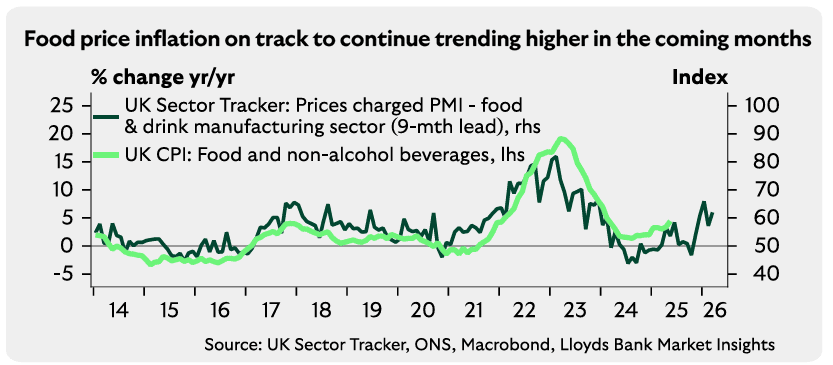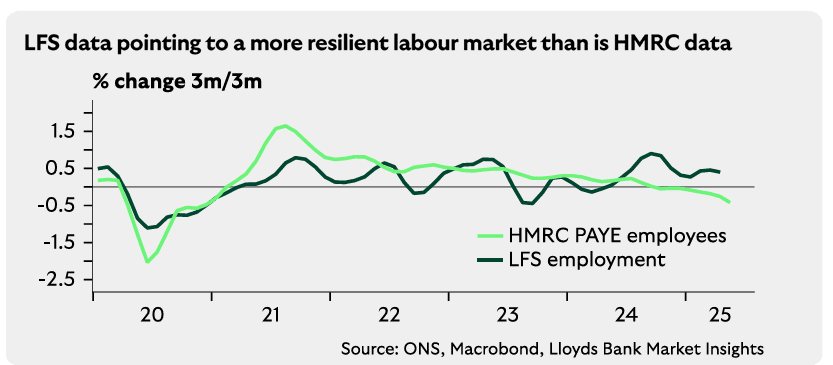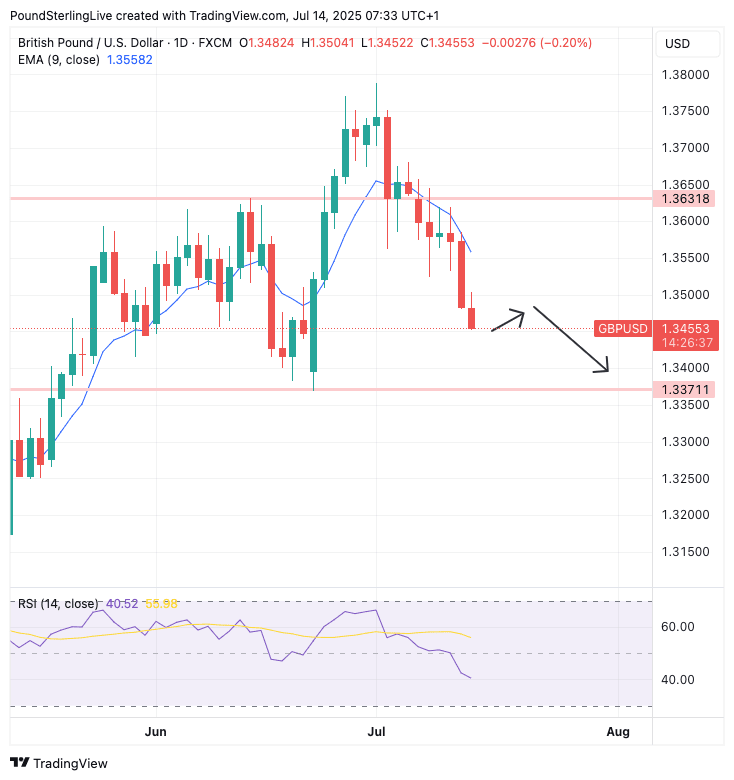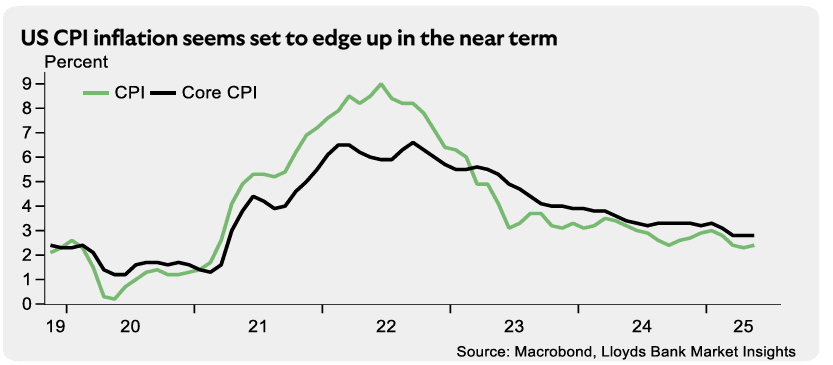
U.S. inflation is in focus this week. Image © Adobe Images.
The British Pound risks negating its uptrend against the U.S. Dollar.
Despite a flurry of new developments in U.S. tariff policy over the weekend, the Dollar is firming, pushing the Pound to Dollar conversion (GBP/USD) down to 1.3460, its lowest level since June 23.
Trump warned of a 30% import tariff on European goods unless a trade accord is reached by August 01. The EU said it would make its response known by August 01, and all signs point to the EU retaliating and not simply lying down.
Yet, despite these concerns, the Dollar has strengthened against both the Euro and the Pound over recent hours, suggesting the old trade of selling USDs on tariff headlines is losing its attraction.
Developments expose the GBP/USD's soft underbelly: the daily chart suggests the 2025 uptrend is now decidedly on hold as it warns of further weakness being possible in the near-term, with 1.3370 being the objective.
Note that the Friday selloff that followed below-consensus UK GDP data, and Monday's subsequent weakness, has taken GBP/USD too far from its nine-day exponential moving average (EMA).
This is an oversold signal on the very short timeframes, and leaves us thinking it might recover towards 1.3500 initially, before extending to new multi-day lows.
Above: GBP/USD at daily intervals.
Tariff headlines will provide the overarching source of intrigue in the coming week, given Trump is apparently trying to force concessions from trade partners ahead of the August 01 deadline he imposed.
However, owing to the Dollar's apparent nonchalance to the issue, it could fall to the data to provide the excitement.
In the US, consumer price inflation is due on Tuesday, and it will prove a deciding factor in whether or not the Federal Reserve opts to cut interest rates later this month.
Trump's aggressive tariff policies raised concerns that inflation could rise significantly. However, the May inflation report confirmed there has been no sign of rising prices yet.
This could change, as some companies are reporting rising costs, and it seems only a matter of time before price adjustments occur.
Image courtesy of Lloyds Bank
Walmart, the world's largest retailer, says it will have to start raising prices later this month due to the high cost of tariffs, executives said last week.
Should inflation beat expectations (2.6% y/y in June), the Dollar can strengthen further.
The UK side of the equation bears watching this week as it should provide fresh ammunition to sell GBP/USD.
UK inflation for June is due for release midweek, and typically, we would expect the Pound to strengthen when inflation beats expectations.
However, we think an above-consensus inflation print (the rate of CPI inflation is forecast to be unchanged from May’s 3.4% y/y print) would stir fears that the UK is entering a period of stagflation (high inflation combined with low growth). These episodes rarely support a currency.

Above image courtesy of Lloyds Bank.
Thursday's UK labour market report is equally important for the Pound as it is expected to provide further indications that the UK labour market is cooling.
There are ongoing signs that Rachel Reeves' job tax is weighing on employment, and further job losses are likely. The problem for traders is that the UK's job market statistics are a mess, with some elements of the survey now considered to be inaccurate.
"As has generally been the case in recent months, the extent to which conditions are viewed as having loosened is like to differ across the various measures. Most attention is likely to be on the HMRC/PAYE data which showed the number of payrolled employees fell for a seventh straight month in May," says a note from Lloyds Bank.

Image courtesy of Lloyds Bank
A soft jobs report will provide further evidence to the Bank of England that economic slack is opening up, inviting more interest rate cuts.
With FX markets starting to pay attention to relative interest rates once more, an acceleration in Bank of England cuts would prove detrimental to the Pound.
Bank of England Governor Andrew Bailey told the Times newspaper on Monday that the direction of interest rates is definitely to the downside. In the interview he gave a strong signal that the Bank would step up the pace it cuts rates if more "slack" opens up in the economy.
Slack refers to a scenario where the economy is not performing at its full potential, with unemployment rising and output slowing. It is considered deflationary, and would give the Bank greater confidence that inflation will fall to 2.0% in 2026, as is currently anticipated.
"The pound fell to a three-week low against the US dollar after governor Andrew Bailey said the Bank of England could cut rates faster if the job market slows. Odds of a quarter point rate cut on 7 August increased and pushed cable back below the 1.35 handle," says Neil Wilson, market analyst at Saxo Bank.


